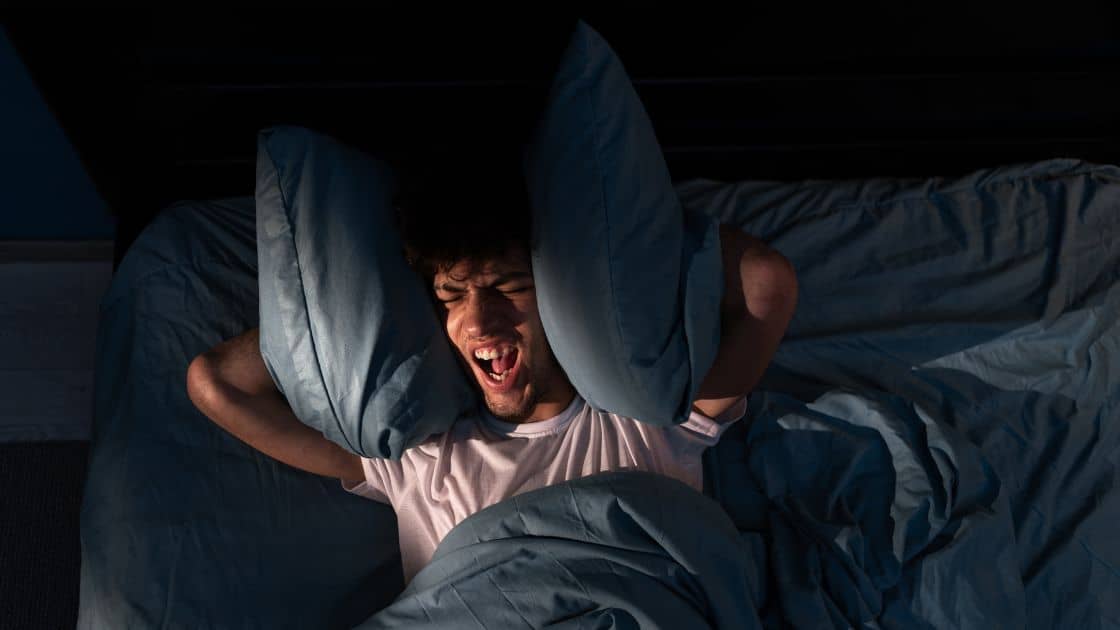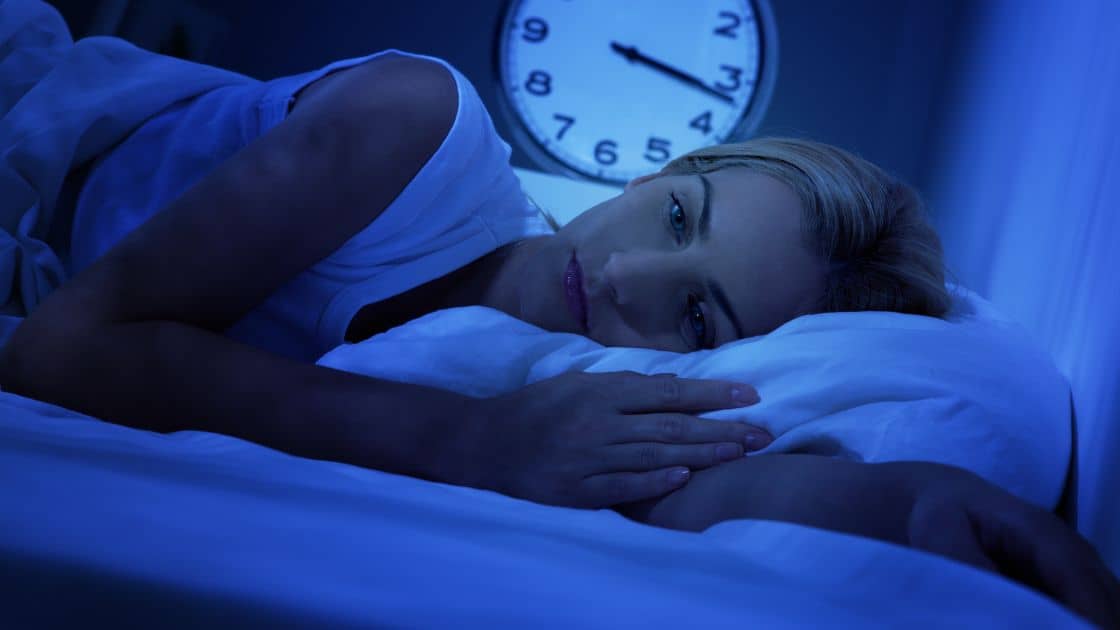Key Highlights
- Poor sleep can negatively affect our overall well-being, but there are effective strategies to enhance sleep quality.
- Establishing a relaxing pre-sleep routine, optimizing your sleep environment, and sticking to a consistent sleep schedule are important factors in improving sleep.
- Making dietary adjustments, engaging in physical activity, and reducing blue light exposure before bedtime can also improve sleep quality.
- Mindfulness and relaxation techniques, understanding and managing stress, and keeping a sleep diary can further aid in improving sleep.
- Psychology and psychotherapy can play a significant role in addressing sleep issues, including cognitive behavioural therapy for insomnia.
- Frequently asked questions about sleep, such as the best time to go to bed and the impact of caffeine on sleep quality, are also addressed in this blog.
Introduction
Sleep is vital to our overall well-being and plays a crucial role in our physical and mental health. However, many people struggle with getting a good night’s sleep due to various factors such as stress, poor sleep hygiene, sleep disorders, and sleep deprivation. The consequences of trouble sleeping can include fatigue, irritability, difficulty concentrating, and even an increased risk of certain health conditions.
Fortunately, there are effective strategies that can help improve sleep quality and promote better overall health. By implementing these strategies, you can establish healthy sleep habits and create a sleep-conducive environment that supports restful and rejuvenating sleep.
Effective Strategies to Enhance Sleep Quality
Improving sleep quality involves adopting proactive measures to address the various factors that can impact sleep. Implementing effective strategies can enhance your sleep health and promote optimal health and well-being. These strategies include establishing a relaxing pre-sleep routine, optimizing your sleep environment for comfort, sticking to a consistent sleep schedule, making dietary adjustments, engaging in physical activity, reducing blue light exposure before bedtime, practicing mindfulness and relaxation techniques, understanding and managing stress, keeping a sleep diary, and addressing sleep issues through psychology and psychotherapy.
1. Establishing a Relaxing Pre-Sleep Routine
One effective strategy to enhance sleep quality is establishing a relaxing pre-sleep routine. This routine should consist of activities that promote relaxation and signal to your body that it’s time to wind down and prepare for sleep, including making small changes to your sleep environment. Engaging in relaxation techniques such as deep breathing exercises, progressive muscle relaxation, and guided imagery can help calm the mind and reduce stress levels.
Taking a warm bath or shower before bed can also promote sleep. The rise and subsequent drop in body temperature after a warm bath can signal to the body that it’s time for sleep. Additionally, the soothing sensation of warm water can help relax the muscles and promote a sense of calmness.
Creating a calming and comfortable bedroom environment is also important for a good night’s sleep. Ensure that your sleep environment is quiet, dark, and at a comfortable temperature. Consider using white noise machines, blackout curtains, and adjusting the thermostat to create a sleep-conducive atmosphere. If you struggle with dry mouth or sinus issues, adding a humidifier to your sleep environment can also be beneficial. Establishing a relaxing pre-sleep routine and optimizing your sleep environment can set the stage for a restful night’s sleep.
2. Optimizing Your Sleep Environment for Comfort
Creating a comfortable sleep environment is essential for promoting better sleep quality. Optimizing your sleep environment involves considering several factors, including the temperature, sleep position, and overall atmosphere of your bedroom. Here are some tips to optimize your sleep environment for comfort:
- Maintain a comfortable temperature: The ideal temperature for sleep is typically between 60 and 67 degrees Fahrenheit. Experiment with different temperatures to find what works best for you and ensure your bedroom is well-ventilated.
- Choose the right sleep position: Your sleeping position can affect your comfort and sleep quality. Try different sleeping positions, such as sleeping on your back, side, or stomach, and use pillows to support your neck and spine.
- Keep the room cool: A cool room temperature can improve sleep. Use fans or air conditioning to maintain a cool and comfortable environment.
- Use comfortable bedding and pillows: Invest in high-quality, comfortable ones that support your body and provide proper alignment. Consider factors such as firmness, material, and hypoallergenic options based on your personal preferences and needs.

3. The Importance of Sticking to a Consistent Sleep Schedule
Maintaining a consistent sleep schedule is crucial for improving sleep quality and regulating your body’s internal clock. Your body operates on a natural 24-hour cycle, known as the circadian rhythm, which influences your sleep-wake cycle.
Going to bed and waking up at the same time every day helps synchronize your internal clock and promotes better sleep. This consistency helps regulate your body’s sleep-wake cycle, making it easier to fall asleep and wake up naturally.
To establish a consistent sleep schedule, set a regular bedtime and wake-up time for adequate sleep duration. Aim for seven to nine hours of sleep per night, depending on your individual needs. Avoid staying up late or sleeping in excessively on weekends, as this can disrupt your sleep schedule and make it harder to get back on track during the week. It is important to prioritize getting enough sleep every night, as it can significantly impact your overall health and well-being.
By sticking to a consistent sleep schedule, you can align your body with its natural rhythm and improve the quality of your sleep.
4. Dietary Adjustments to Promote Better Sleep
What you eat and drink can significantly impact your sleep quality. Making dietary adjustments can be an effective strategy to promote better sleep. Here are some tips to optimize your diet for better sleep:
- Limit caffeine intake: Caffeine is a stimulant that can interfere with sleep. Avoid caffeinated beverages or foods, such as coffee, tea, energy drinks, chocolate, and certain medications, close to bedtime. Instead, choose caffeine-free alternatives, such as herbal tea or decaffeinated beverages.
- Avoid large meals close to bedtime: Consuming a heavy or spicy meal shortly before bed can cause discomfort and interfere with sleep. Aim to finish your last meal or snack at least two to three hours before bedtime to allow for proper digestion.
- Incorporate a bedtime snack: While large meals should be avoided before bed, a light snack can promote better sleep. Choose sleep-friendly foods such as a small portion of complex carbohydrates (e.g., whole grain crackers), a small amount of protein (e.g., a handful of nuts), or foods rich in sleep-promoting nutrients like tryptophan (e.g., a glass of warm milk).
Making dietary adjustments that prioritize sleep can support better sleep quality and improve your overall well-being.
5. Physical Activity’s Role in Improving Sleep Quality
Physical activity plays a significant role in improving sleep quality. Regular exercise or physical activity can help regulate your sleep-wake cycle and promote better sleep. Here’s how physical activity can contribute to better sleep quality:
- Improved sleep duration: Regular exercise can help you fall asleep faster and enjoy longer periods of deep sleep, essential for overall sleep quality.
- Reduced sleep disturbances: Physical activity can help reduce sleep disturbances, such as insomnia or waking up at night. It can also help alleviate symptoms of sleep disorders, such as sleep apnea.
- Enhanced daytime energy: Regular exercise can increase your overall energy levels during the day, making you feel more alert and less tired. This can result in better sleep quality at night.
It’s important to note that the timing of physical activity is crucial. Avoid engaging in intense exercise too close to bedtime, as it can increase alertness and make it harder to fall asleep. Aim for at least 30 minutes of moderate-intensity exercise most days of the week, but be mindful of your individual fitness levels and consult with a healthcare professional before starting a new exercise routine. Regular physical activity has been shown to improve sleep quality, with one study in older adults finding that it nearly halved the amount of time it took to fall asleep and provided 41 more minutes of sleep at night.
You can improve sleep quality and overall well-being by incorporating regular physical activity into your daily routine.
6. Reducing Blue Light Exposure Before Bedtime
Exposure to blue light emitted by electronic devices such as smartphones, laptops, and tablets can disrupt your sleep-wake cycle and make it harder to fall asleep. Reducing blue light exposure before bedtime can help promote better sleep quality. Here are some tips to minimize blue light exposure:
- Limit electronic device usage: Avoid using electronic devices, such as smartphones or tablets, for at least one to two hours before bedtime. Instead, engage in relaxing activities such as reading a book, taking a warm bath, or practicing relaxation techniques.
- Use a dimmer switch or night mode: If you must use electronic devices before bed, adjust the settings to minimize blue light exposure. Many devices offer a “night mode” or “blue light filter” option that reduces the amount of blue light emitted.
- Wear blue-light-blocking glasses: These glasses can help filter out blue light and protect your eyes from its negative effects. Wear them in the evening to minimize blue light exposure and promote better sleep.

Reducing blue light exposure before bedtime can help regulate your sleep-wake cycle and improve sleep quality.
7. Mindfulness and Relaxation Techniques for Better Sleep
Practicing mindfulness and relaxation techniques can be effective in promoting better sleep quality. These techniques help calm the mind, reduce stress levels, and prepare the body for sleep. Here are some mindfulness and relaxation techniques to incorporate into your bedtime routine:
- Deep breathing exercises: Take slow, deep breaths in through your nose and out through your mouth. Focus your attention on your breath, allowing it to anchor you in the present moment and promote relaxation.
- Progressive muscle relaxation: Start by tensing and then relaxing each muscle group in your body, starting from your toes and working your way up to your head. This technique helps release tension and promotes a state of relaxation.
- Guided imagery: Visualize a peaceful and calming scene, such as a serene beach or a tranquil forest. Engage your senses and immerse yourself in the details of the scene, allowing your mind to focus on positive and calming imagery.
- Mindfulness meditation: Mindfulness involves focusing on the present moment and accepting it without judgment. Engaging in mindfulness meditation before bed can help quiet the mind and reduce stress.
Practicing mindfulness and relaxation techniques before bed can reduce stress and mental chatter, allowing for a more peaceful and restful night’s sleep.
8. Understanding and Managing Stress for Improved Sleep
Stress can have a significant impact on sleep quality. Understanding and managing stress is essential for improving sleep. Here are some strategies to help reduce stress levels and promote better sleep:
- Identify stressors: Take time to identify the sources of stress in your life and explore ways to address or manage them. This can include setting boundaries, delegating tasks, or seeking support from others.
- Practice emotional regulation: Develop healthy coping mechanisms to manage stress, such as deep breathing exercises, journaling, or engaging in activities that bring you joy and relaxation.
- Prioritize self-care: Make self-care a priority and engage in activities that promote relaxation and well-being. This can include practicing mindfulness, exercising regularly, getting regular massages, or engaging in hobbies and interests.
- Seek support: If stress and sleep issues persist, consider seeking support from a healthcare professional or therapist who can provide guidance and strategies for managing stress and improving sleep.
Understanding and managing stress levels can create a more conducive environment for restful sleep and overall well-being.

9. How a Sleep Diary Can Uncover Patterns Affecting Sleep
Keeping a sleep diary can be a valuable tool for uncovering patterns affecting your sleep. A sleep diary involves recording key information about your sleep habits and patterns over some time.
Here’s an example of a sleep diary:
|
Column A |
Column B |
|
Date of Sleep |
The time you went to bed and the time you woke up |
|
Duration of Sleep |
Number of hours slept |
|
Sleep Quality |
Rating of sleep quality from 1-10 |
|
Sleep Environment |
Any factors that may have influenced sleep (e.g., noise, temperature) |
|
Sleep Habits |
Activities or behaviours before bed (e.g., caffeine consumption, exercise) |
|
Feelings upon waking |
Mood or feelings upon waking (e.g., refreshed, groggy) |
By tracking your sleep patterns and habits, you can identify factors that may be contributing to poor sleep quality, such as irregular sleep schedules, nighttime activities, or environmental factors. This information can help guide adjustments to your sleep routine and environment to promote better sleep.
10. The Impact of Napping on Nighttime Sleep Quality
Napping can have both positive and negative effects on nighttime sleep quality. While a short nap can provide a boost of energy and improve cognitive function, longer or poorly timed naps can interfere with nighttime sleep. Here are some considerations regarding napping and its impact on sleep quality:
- Length of nap: Limit naps to 20-30 minutes to avoid entering deep sleep stages, which can lead to grogginess upon waking.
- Timing of nap: Avoid taking naps too close to bedtime, as this can disrupt your natural sleep-wake cycle. Aim to take naps earlier in the day, ideally in the early afternoon.
- Sleep debt: If you consistently get insufficient sleep at night, napping during the day may be a way to compensate for sleep debt. However, it is important to prioritize nighttime sleep and establish a consistent sleep schedule to avoid relying on naps as a substitute for quality sleep.
By considering the timing and length of naps, you can incorporate them strategically into your daily routine to promote better sleep quality at night.
11. Creating a Sleep-Conducive Bedroom Atmosphere
Creating a sleep-conducive bedroom atmosphere is essential for promoting better sleep quality. Here are some tips to create a sleep-conducive bedroom:
- Keep it dark: Use blackout curtains or blinds to block out external light sources that can disrupt sleep. Consider using a sleep mask if necessary.
- Minimize noise: Use white noise machines or earplugs to mask disruptive sounds that can interfere with sleep. Alternatively, you can use a fan to soothe background noise.
- Control the temperature: Keep your bedroom comfortable, typically between 60 and 67 degrees Fahrenheit. Use fans, air conditioning, or heaters to achieve the desired temperature.
- Limit electronic devices: Remove electronic devices such as smartphones, laptops, and tablets from the bedroom, as they can emit blue light and disrupt sleep.
- Create a calm and inviting space: Decorate your bedroom with soothing colours and textures, and keep it organized and clutter-free to promote a sense of tranquillity and relaxation.
By creating a sleep-conducive atmosphere in your bedroom, you can optimize your sleep environment and enhance your sleep quality.

12. The Benefits of Limiting Caffeine and Alcohol Intake
Limiting caffeine and alcohol intake can significantly impact sleep quality. Here’s how caffeine and alcohol can affect sleep:
- Caffeine: Caffeine is a stimulant that can interfere with sleep. It can increase alertness and reduce sleepiness, making it harder to fall asleep and stay asleep. To minimize its effects on sleep, avoid consuming caffeine in the afternoon and evening. Opt for caffeine-free alternatives or limit consumption to earlier in the day.
- Alcohol: While alcohol may initially make you feel drowsy and promote sleep, it can disrupt the sleep cycle and lead to poorer sleep quality. Alcohol can interfere with REM sleep, resulting in less restorative sleep. Limit alcohol consumption, especially close to bedtime, to promote better sleep.
By limiting caffeine and alcohol intake, you can create a more favourable sleep environment and improve the quality of your sleep.
How Psychology and Therapy Can Aid Sleep Improvement
Understanding the psychological factors affecting sleep and utilizing therapy techniques can be beneficial in improving sleep quality. Psychology and therapy can play a significant role in addressing sleep issues, such as sleep disorders and insomnia. Cognitive behavioural therapy (CBT) is often used to treat insomnia and involves identifying and modifying negative thoughts and behaviours that contribute to sleep problems. By addressing underlying psychological factors and learning effective coping strategies, individuals can experience improved sleep and overall well-being.
Understanding the Psychological Factors Affecting Sleep
Psychological factors can have a significant impact on sleep quality. Stress, anxiety, depression, and other mental health conditions can interfere with sleep and contribute to sleep problems. Understanding these psychological factors is essential in addressing sleep issues and improving sleep quality.
By working with a healthcare provider or therapist, individuals can gain insight into the psychological factors affecting their sleep and develop effective strategies to manage and reduce these factors. This may involve cognitive behavioural therapy, stress management techniques, and relaxation exercises.
Addressing and managing psychological factors can improve sleep quality and overall well-being.
Cognitive Behavioral Therapy (CBT) for Insomnia
Cognitive behavioural therapy (CBT) is a widely recognized and effective treatment for insomnia. CBT for insomnia involves identifying and modifying negative thoughts and behaviours that contribute to sleep problems. Here’s how CBT can help improve sleep quality:
- Sleep education: CBT helps individuals better understand sleep and the factors that can impact sleep quality. It also helps individuals develop realistic expectations and beliefs about sleep.
- Sleep restriction therapy: This technique temporarily limits time spent in bed to match actual sleep time. By gradually increasing this time, individuals can improve their sleep efficiency and reduce the time spent awake in bed.
- Stimulus control therapy: It associates the bed and bedroom environment with sleep. It involves creating a sleep-conducive environment and using the bed only for sleep and sexual activity.
- Cognitive restructuring: This technique helps individuals identify and challenge negative thoughts and beliefs about sleep, replacing them with more positive and realistic thoughts.
CBT for insomnia can be conducted individually with a therapist or through online programs. It is a non-drug treatment option that can lead to long-term improvements in sleep quality.

The Role of Therapy in Addressing Sleep Disorders
Therapy can be crucial in addressing sleep disorders and improving sleep quality. When individuals experience chronic sleep problems or sleep disorders such as insomnia, working with a healthcare provider or therapist can provide valuable support and guidance. Here’s how therapy can help:
- Identifying underlying causes: Therapy sessions can help individuals explore and identify the underlying causes of their sleep problems, such as stress, trauma, or mental health conditions.
- Developing coping strategies: Therapists can help individuals develop effective coping strategies to manage sleep problems, such as relaxation techniques, stress management, and cognitive restructuring.
- Promoting healthy sleep habits: Therapists can provide guidance and education on healthy sleep habits and routines, helping individuals establish a consistent sleep schedule and optimize their sleep environment.
By seeking therapy for sleep disorders, individuals can receive tailored guidance and support in addressing their specific sleep concerns, leading to improved sleep quality and overall well-being.
Conclusion
Ensuring quality sleep is crucial for overall well-being. You can significantly enhance your sleep quality by implementing relaxing pre-sleep routines, optimizing your sleep environment, and maintaining a consistent sleep schedule. Making dietary adjustments, engaging in physical activity, and managing stress play vital roles. Mindfulness techniques and therapy can further aid in improving sleep patterns. Remember, creating a sleep-conducive atmosphere and limiting caffeine/alcohol intake is beneficial. Seek support from psychologists or therapists to address any underlying sleep issues. Prioritize your sleep for a healthier and more rejuvenated lifestyle.
Frequently Asked Questions
What is the best time to go to bed for optimal sleep?
The best time to go to bed for optimal sleep can vary depending on individual factors such as age, lifestyle, and personal preferences. However, experts generally recommend aiming for seven to nine hours of sleep per night and establishing a consistent sleep schedule that aligns with your natural circadian rhythm. This helps regulate your internal clock and promotes a good night’s rest.
Can certain foods or drinks improve sleep quality?
Certain foods and drinks can promote better sleep quality. Warm milk or a bedtime snack containing complex carbohydrates and sleep-promoting nutrients like tryptophan can aid in relaxation and promote sleep. Additionally, herbal teas such as chamomile or lavender or supplements like valerian root can contribute to better sleep.
How can I calm my mind if I can’t fall asleep?
Try practicing mindfulness and relaxation techniques if you’re having trouble falling asleep due to a racing mind. Engage in deep breathing exercises, focus on the present moment, and let go of racing thoughts. These techniques can help calm the mind and promote relaxation, making it easier to fall asleep.
Is it better to have a completely dark room for sleeping?
Creating a dark room for sleep generally promotes better sleep quality. Light exposure, even small amounts, can interfere with the body’s natural sleep-wake cycle. Blackout curtains or a sleep mask can help block out external light sources and support a restful sleep environment.
How does exercise affect sleep?
Regular exercise and physical activity have positive effects on sleep quality. Exercise promotes more profound and restorative sleep, reduces sleep disturbances, and increases daytime energy levels. However, avoiding exercising too close to bedtime is essential, as it can increase alertness and make it harder to fall asleep.
Can a psychologist or therapist help with sleep issues?
Yes, psychologists and therapists can provide valuable support and guidance for individuals experiencing sleep issues. They can help identify underlying causes of sleep problems, develop coping strategies, and provide techniques to improve sleep quality. Seeking the help of a psychologist or therapist can be beneficial in addressing sleep issues and improving overall well-being.
What are some common sleep myths debunked by science?
Scientific research has debunked several common sleep myths. Some examples include the belief that everyone needs eight hours of sleep, that alcohol promotes better sleep, or that snoring is harmless. Understanding the science behind sleep can help dispel these myths and encourage good sleep habits based on evidence and research.






